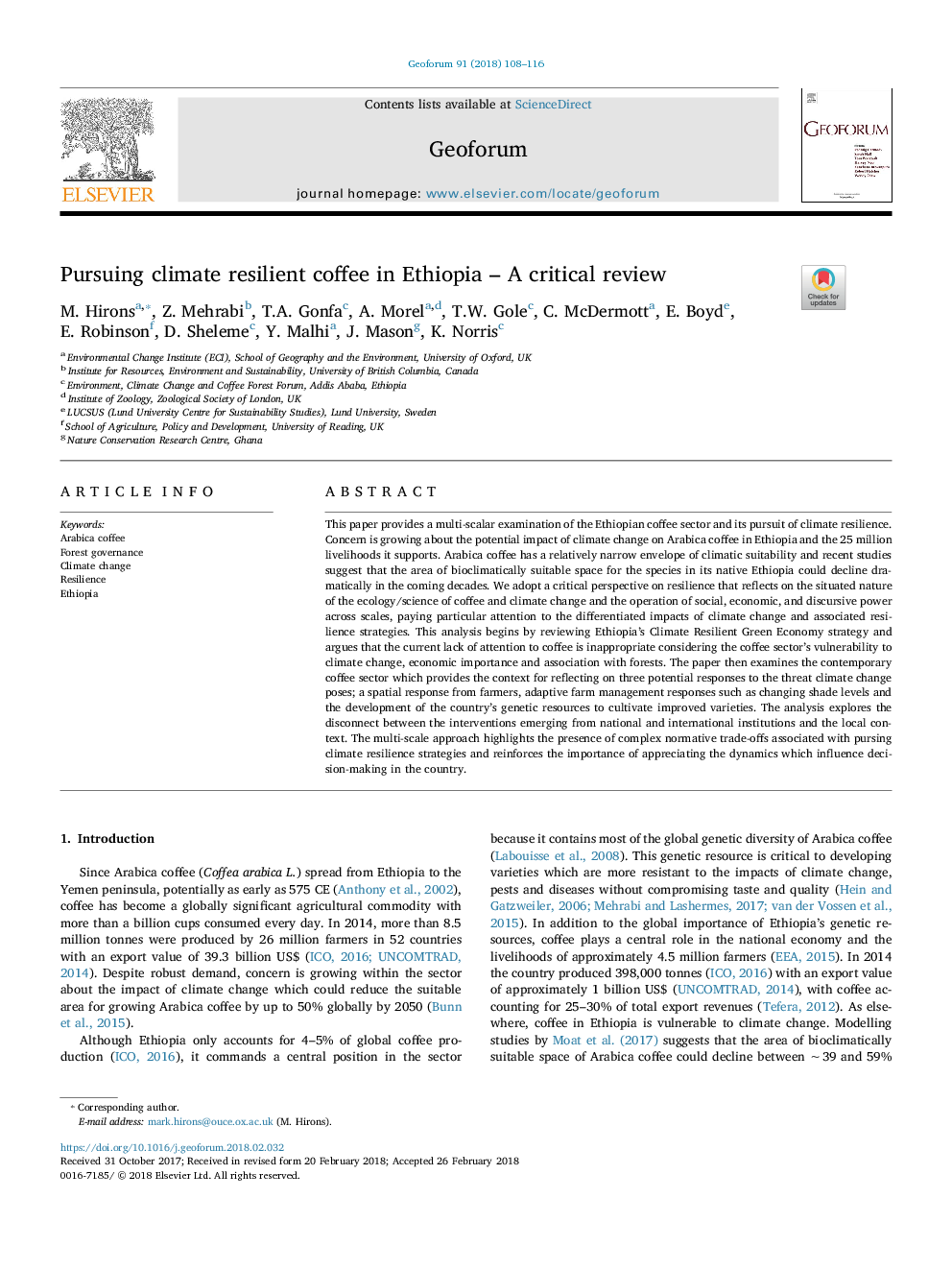ترجمه فارسی عنوان مقاله
پیشگیری از قهوه انعطاف پذیر در آب و هوا در اتیوپی بررسی انتقادی
عنوان انگلیسی
Pursuing climate resilient coffee in Ethiopia A critical review
| کد مقاله | سال انتشار | تعداد صفحات مقاله انگلیسی |
|---|---|---|
| 109874 | 2018 | 9 صفحه PDF |
منبع

Publisher : Elsevier - Science Direct (الزویر - ساینس دایرکت)
Journal : Geoforum, Volume 91, May 2018, Pages 108-116
ترجمه کلمات کلیدی
قهوه عربیکا، حکومت جنگل، تغییر آب و هوا، انعطاف پذیری، اتیوپی،
کلمات کلیدی انگلیسی
Arabica coffee; Forest governance; Climate change; Resilience; Ethiopia;

